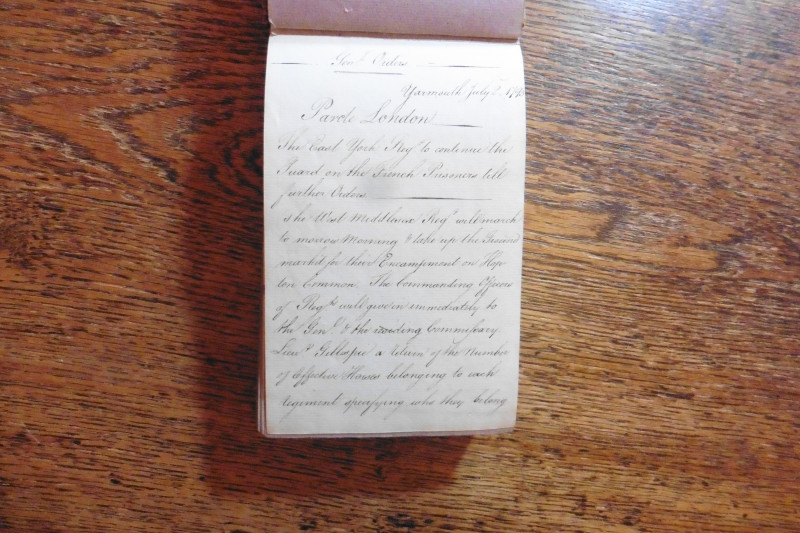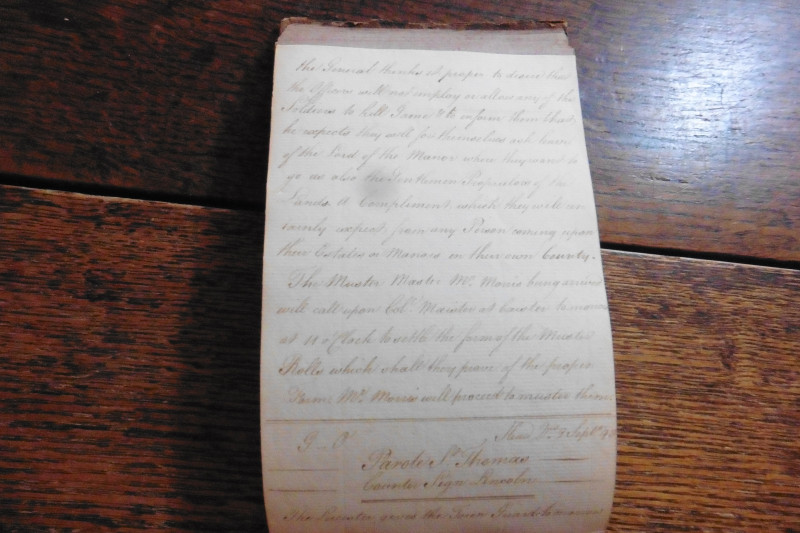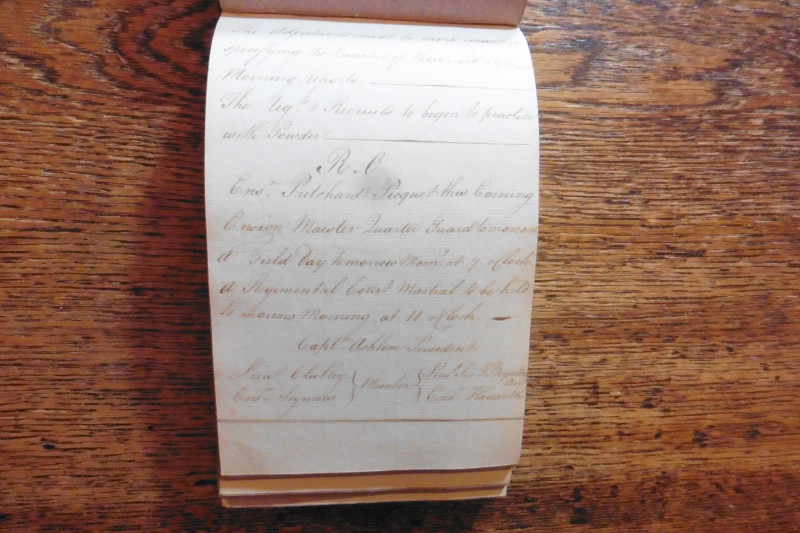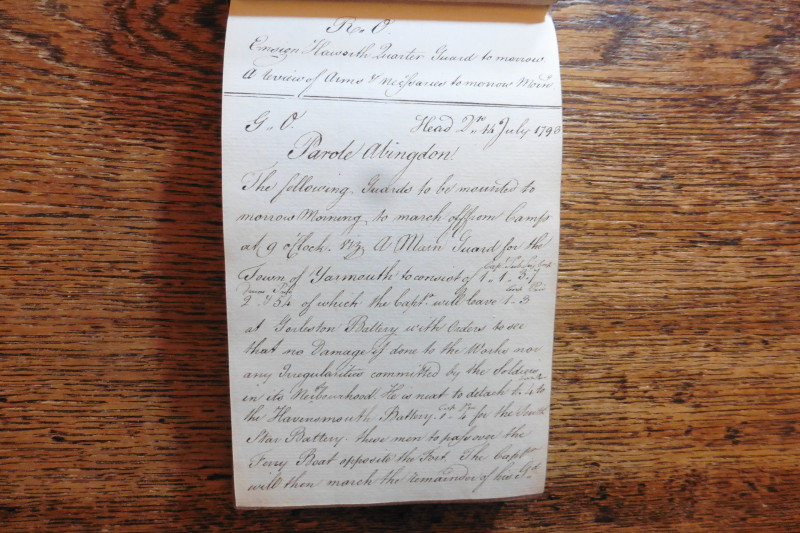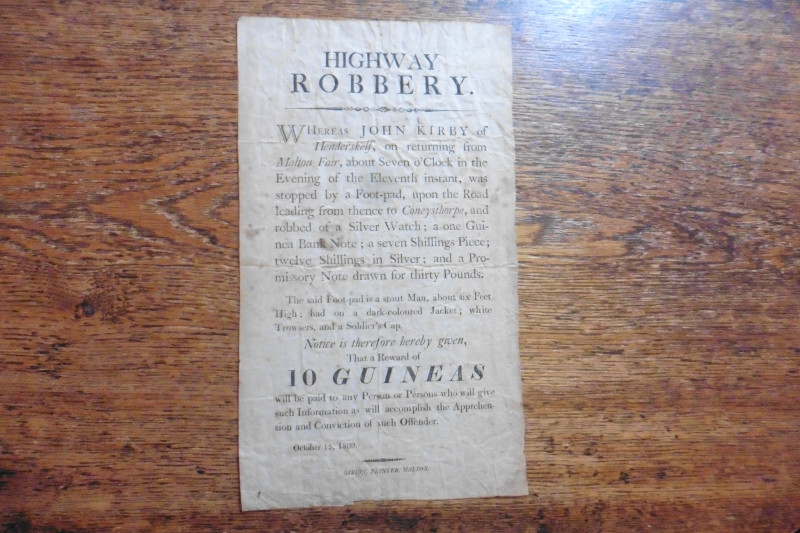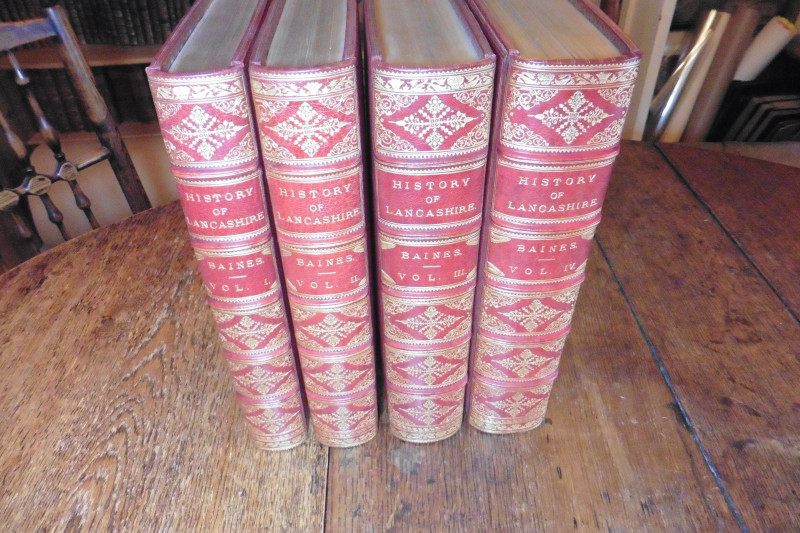NAPOLEONIC WARS - EAST YORK REGIMENT MANUSCRIPT ORDERLY BOOK JULY-DEC 1793.






Book Description
Oblong octavo, 134p interleaved with blotting paper, plus blanks. Contemporary full calf, sl worn.
Completed by Ensign J. Maister at Caister-on-Sea near Great Yarmouth, Norfolk, one of several large encampments guarding the coast at this time of heightened military activity. France had guillotined their King on January 21st of that year and declared war on Britain eleven days later. With a separate entry for each day, and each day with a password or “parade.”
In July they find themselves guarding French prisoners of war, and the Middlesex Regiment marches to encampment on Hopton Common. The men are warned that there is to be “no gaming, drunken-ness or disorderly Proceedings in their tents or booths.” Details are given of the various beatings and military exercises, roll calls, retreats, tattoos, and there are daily inspections.
The NCOs are not allowed into Yarmouth town without an officer escort, and soldiers are cautioned not to eat too much fish lest they suffer from fluxes, and all who bathe in the sea are directed to a gully. Hours of bathing are restricted to 6-8 in the morning on Sunday, Tuesday and Friday.
The Leicester Regiment escorts two deserters from the South Lincoln Militia, and guard of the French prisoners is rotated between the regiments.
Exercises continue with drilling of recruits and practice with field pieces. Quantities of powder and ammunition are ordered. There is mention of Henry High, a deserter from Tufton’s Independent Company.
NCOs are warned about cutting their names in doors, sentry boxes, and other woodwork, under pain of punishment, but they seem to be well fed and are given appropriate portions of meat in their rations.
A firing of a “Feu de Joye” is ordered to celebrate the army’s victory at Valenciennes, and details are given regarding the correct protocol for this.
Sam Sell, 32, a butcher by trade from Elsworth, Cambridge, (“grey yes, fair complexion, long face, Roman nose, stout) is Court Martialled and drummed out of the Cambridge Militia.
Soldiers from Hopton Camp are stealing geese and other fowls from neighbouring farms at night, and two men apparently from the Middlesex Regiment stole a sheep from a field and skinned it, carrying off the carcass. The men are warned that should the offenders be caught, they “may first be tried by a Court Martial for the Breach of orders and military law and then given over to the civil powers to take their trial”……..”from whence should they not be hanged as they deserve they will certainly be sent to Botany Bay.”
The manuscript at some length provides a fascinating glimpse into the army’s preparations for the coastal defence of England at a time of intensified anxiety respecting the Corsican’s intentions, as well as the daily life of a military camp during the Napoleonic Wars.
Author
Maister, J.
Date
1793
Binding
Full contemporary calf
Publisher
Not published
Condition
Very Good
Friends of the PBFA
For £10 get free entry to our fairs, updates from the PBFA and more.
Please email info@pbfa.org for more information
